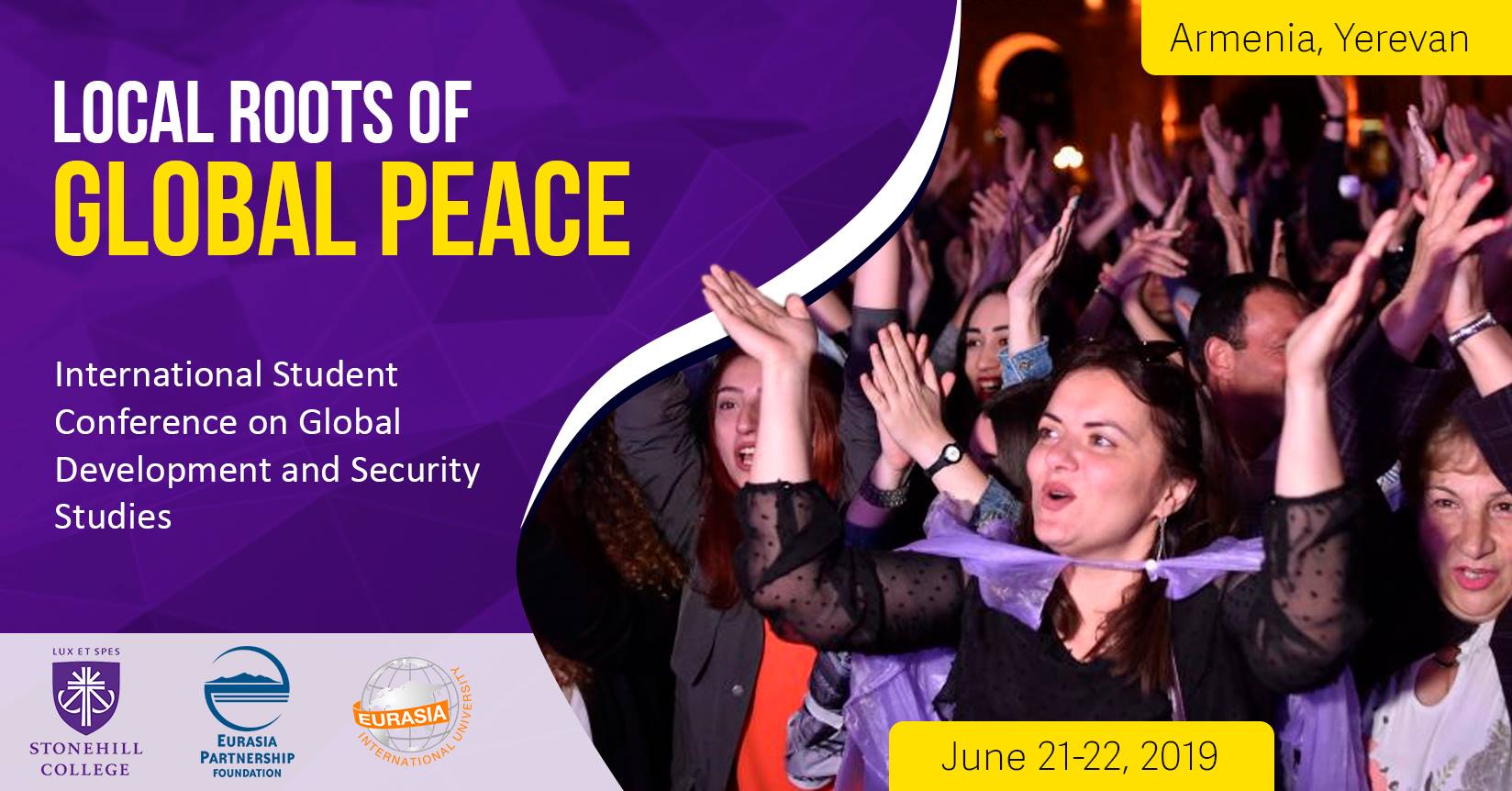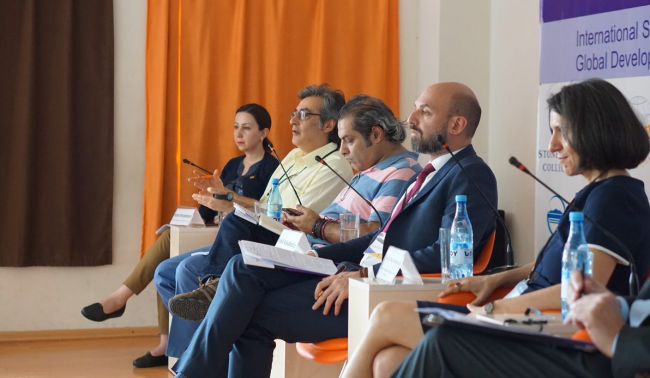
Call for Proposals. LOCAL ROOTS OF GLOBAL PEACE: International Student Conference on Global Development and Security Studies
Call for Proposals
English is the working language of the conference, with limited translation in Armenian and Russian.
The emergence of a multipolar world politics is promising for many. The “rise of the rest” is expanding the agency of developing countries, potentially leading to more inclusive systems of global governance. Optimists claim that increased multipolarity will create more open economies and political systems and a deeper and more integrated liberal rules-based order. The more circumspect worry that the power competition between the West and the rest, heightened in recent years, will increase divisions in conflict regions, creating fresh openings for proxy wars. Whether in the Middle East, South Caucasus, or the Western Balkans in the EU’s backyard, unsettled regional security orders have shown a propensity to become global security threats. Multipolarity in world politics has caused ongoing conflicts to become protracted and intractable, and this poses a major challenge to the international community. Global conflict management systems are under stress, outcomes from liberal peacebuilding and authoritarian conflict management strategies have been mixed at best and meaningful discourse and debate on the quality and nature of future peace is still in its infancy.
While states, large and small, remain central to strategic global security, people power and social movements around the world will increasingly shape the contours and the content of a multipolar world order. The prospects of the liberal principles of human rights, free markets, and open political systems in this context are highly contingent on the ability and the willingness of the people to support them. Armenia’s Velvet Revolution in 2018, realized through the strategic deployment of nonviolent civil disobedience and people power, was a reaffirmation of the kind of social change that can emerge from the bottom-up, rather than dictated by distant centers of global power.
The purpose of this conference is to understand the shifting impact of world (dis)order on human security. What are the challenges for human security within a multipolar world order? What is the role of people power in keeping states open and peaceful and economies trading with ease? What is the longer history of this transformation? How have art, literature, music, religion, and historiography played a role in shaping perceptions over time? What are the prospects for stronger and deeper diplomacy in conflict regions? How do we address the global flows of refugees and migrants? Women’s empowerment is central in people power movements. How do women apply their agency and voice towards a more prosperous and peaceful world? How significant is gender in shaping political power? How has religion played a role in shaping perspectives and relationships, local and global? In a context of shifting structures of world power, what is the future for human security? How well are the structures of a multipolar world order equipped to address such crises as climate change, ethnic cleansing, or human trafficking?
Professional Development Seminars
The conference will also include professional workshops on effective communication, research methods, writing for broader audiences, effective integration of “writing-to-learn” strategies in college teaching, approaches to experiential learning, and practitioner panels on global security. Registration in the workshops is required to secure participation..
Paper abstracts are invited on the topics and themes listed below:
- Global security studies, old and new
- Armed conflicts, active or frozen
- The history and impact of small state agencies in world politics
- People power in world politics, past and present
- Diaspora as a transnational political actor
- Contemporary authoritarianism and hybrid regimes
- Human rights in a multipolar world order
- The role of religion in global security
- Women’s agency and rights, past and present
- Genocide, war crimes, crimes against humanity and international law
- Climate change and environmental degradation
- Peace processes and peacebuilding practices
- Terrorism, regional and global
- Corruption (local, national, and global) as a security threat
- The nexus of networked crime and armed conflict
- Poverty and human security
- Energy security
- Media, propaganda, and art in war and peace
Area focus is open but papers on post-Communist Eurasia and the Middle East are particularly welcome.
Application and Deadlines
Abstract submission deadline is April 25th, to be submitted electronically to Ian MacLeod (Stonehill College) at [email protected] or Mariam Jilavyan (Eurasia International University) at [email protected].
Successful abstracts will:
- include clearly articulated research goals and a research question;
- identify the relevant scholarship on the topic;
- specify the research methods used in the research project.
The world limit for abstracts is 300. Abstracts must be submitted in English.
Abstracts should be accompanied by a brief bio with the current institutional affiliation of the applicant and full contact information. Decisions will be announced by May 12th. If accepted, full papers must be submitted by June 10th. Registration deadline for all attendees is June 5th, at https://docs.google.com/forms/d/e/1FAIpQLSexjQyezustND_xd39fpRb1xPGWCqGhi3wZYF-SidnIKuFiyA/viewform .
Eligibility Upper level undergraduate and graduate students as well as junior scholars working on issues listed above are invited to submit proposals. Students from the South Caucasus, Iran, Russia, and Turkey are particularly encouraged to apply. (For accepted presenters from Azerbaijan who are unable to attend the conference, on-line/skype delivery of their presentations will be arranged.) Papers nominated by panel chairs and discussants will be published in the peer-reviewed Global Development and Security Studies journal and will be available via electronic access through Stonehill College and Eurasia Partnership Foundation.
For all other inquiries please contact Mariam Jilavyan at [email protected].

